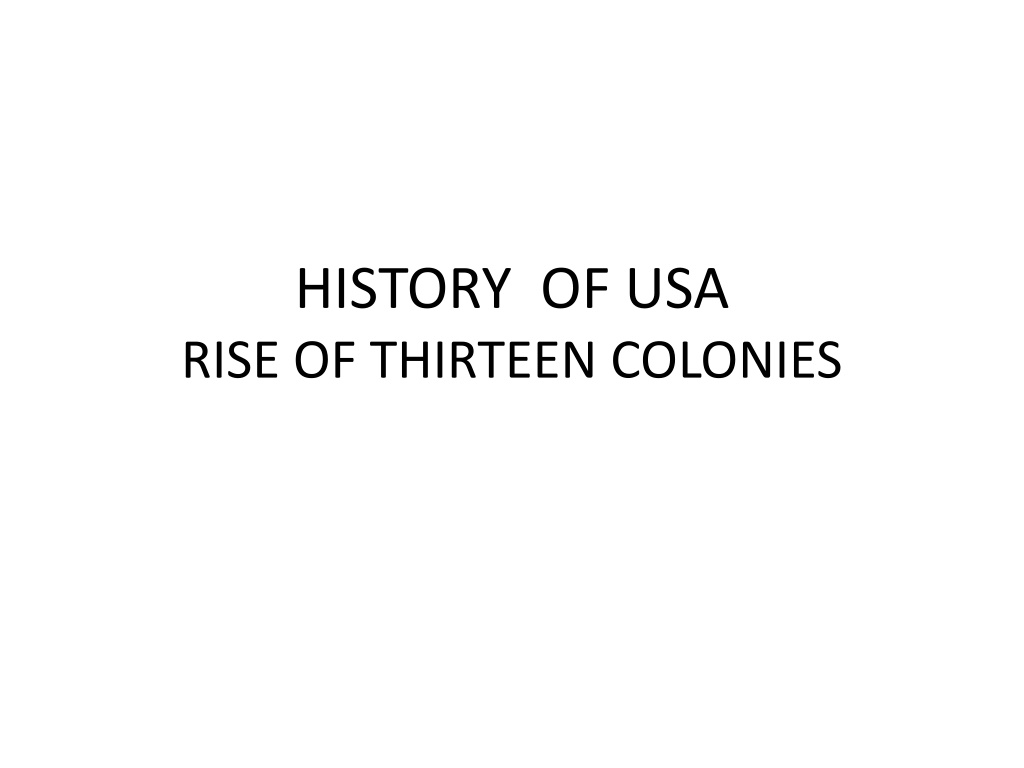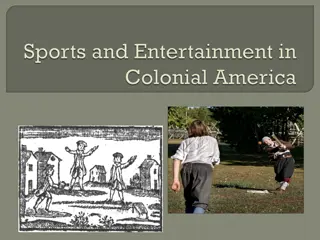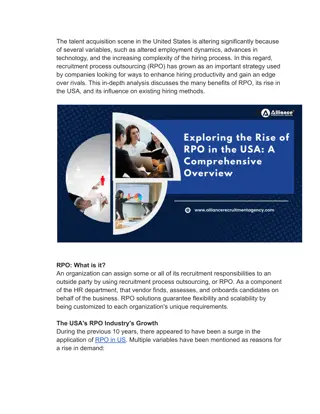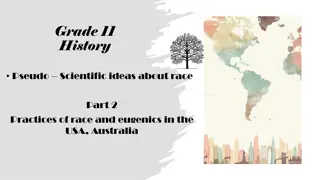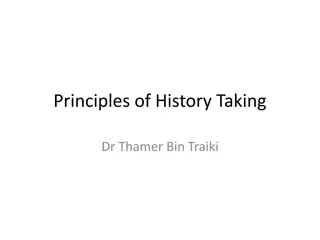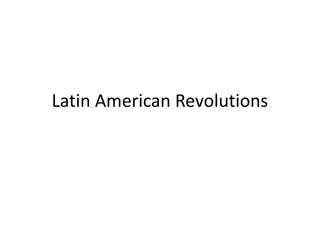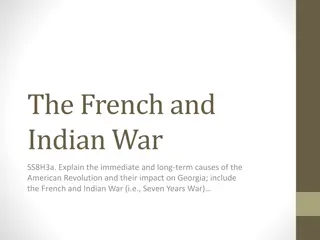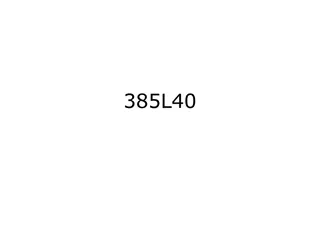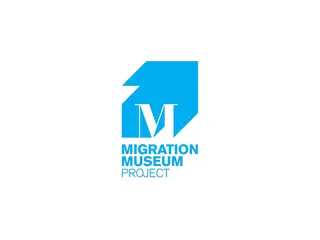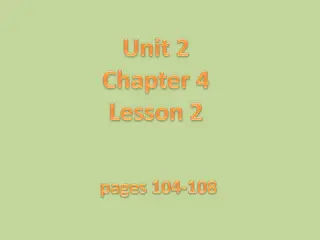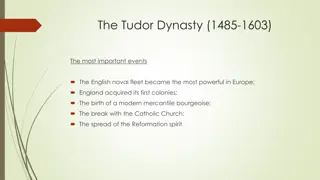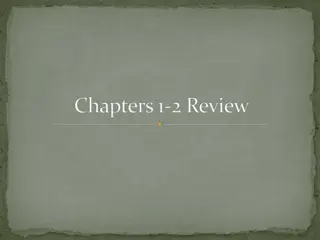History of USA: Rise of Thirteen Colonies
The discovery of the New World sparked European imagination, leading to English colonization of America for freedom, religious freedom, and economic opportunities. Factors such as adventure, religious persecution, economic necessity, and merchant initiatives drove migration. The hospitable climate and land attracted settlers seeking prosperity.
Download Presentation

Please find below an Image/Link to download the presentation.
The content on the website is provided AS IS for your information and personal use only. It may not be sold, licensed, or shared on other websites without obtaining consent from the author.If you encounter any issues during the download, it is possible that the publisher has removed the file from their server.
You are allowed to download the files provided on this website for personal or commercial use, subject to the condition that they are used lawfully. All files are the property of their respective owners.
The content on the website is provided AS IS for your information and personal use only. It may not be sold, licensed, or shared on other websites without obtaining consent from the author.
E N D
Presentation Transcript
HISTORY OF USA RISE OF THIRTEEN COLONIES
INTRODUCTION The discovery of the New World by Christopher Columbus and Americo Vespucci's and the subsequent explorations by a galaxy of adventurers exiled the imagination of the Europeans . The English looked upon America as a land of great opportunity to live in freedom , Security and Property . However , for long they found it a difficult task to move to the west because of the opposition of Spain , which claimed hegemony over the two continents and because of distraction created by civil war in England . The situation turned to their favour as the British gained victory over the Spanish Armada in 1588 and the country returned to order under the Tudors
COLONISATION Factors contributed to the migration of people from England to America 1. It was an age of Adventure : The geographical discoveries and naval explorations exiled the curiosity of the people to learn more about what was considered as strange and mysterious . The newly discovered continents , extensive as they were , offered a tempting field for adventure and opportunity .
2. As a result of the Protestant Reformation and Counter Reformation : The Christian Church split into warring groups. There came into existence religious factions like the Puritans of England ,The Moravians of Germany and the Huguenots of France . The Minorities of England whether they were Puritans or Catholics , suffered persecution under the Tudor Monarchs . They wanted to escape persecution , worship God in their own way and gain converts to their religion . In consequence religious zeal and right to freedom of worship served as guiding motives in colonisation .
3. Economic Necessity : The population of England grew from three million to four million during the 16th Century , but the country recorded no increase in food production. The land holders formed enclosures for sheep rearing and deprived field workers of employment opportunity . The poor and the unemployed decided to find new areas for work and settlement.
4. The great Merchants formed companies to promote colonisation . They found a new lucrative business . Among them were the Muscovy Company , the Levant Company and the Barbary Company . These Companies chartered Ships , Transported the colonies and promoted settlements
5. The Hospitality of the Indian tribes and Hospitable climate of America invited immigration to the New World . A rich and vast area , the land produced a wide variety of fruits , crops and fish . Climate was as moderate and healthy as in Europe . Fishing and trade were highly profitable . The local people extended their sympathy , co- operation and support . As a result the English moved into the New World in wave after wave of migration .
Among the pioneers of colonisation were Humphery Gilbert and Walter Raleigh . Gilbert obtained right from Queen Elizabeth of England to plant colonies . He set up a colony in 1583 in the island of Newfoundland , but the venture failed . Two years later , Raleigh planted a colony in Roanoke island southward , but that too failed . Since then companies were floated on the model of English East India Company to promote colonisation .
The Virgin queen Elizabeth gave the right of settlement in a stretch of land , which she named as Virginia to the Virginia Company . Jamestown , founded by this company , developed into the colony of Virginia . Lord Baltemore , a share holder of this company , decided to open a refuge for his fellow Catholics . King Charles I gave this right to a territory north of Virginia and he named it Maryland , after his Catholic wife , Henreitta Maria A group of merchants from Plymouth organised the Council for New England and promoted colonisation in the region subsequently called New England . From Plymouth 120 people sailed by the Mayflower to form a settlement at Plymouth in New England in 1620 , marking the beginning of colonisation in New England .
Since than the Puritans , who wanted to purify the Church of all Papal rites , and the Separatists , who demanded total separation from the Roman Church , thronged to this coast , As a result there emerged the New England colonies of Massachusetts , Connecticut , Rhode Island , New Hamshire and Maine . In 1643 these colonies formed the New England Confederation for protection against the Indians , the Dutch and the French . Migrants from Virginia , Scotland and France settled in Carolina . King Charles II granted this area to his favourites . As settlers moved in strength it developed into two colonies , North Carolina and South Carolina . The Dutch occupied the territory around Delaware river and called it New Netherland .
But in 1664 Duke of York , afterwards King James II occupied it and named it New York . The Duke granted two areas of New York to his favourites and they became the colonies of New Jersey and Delaware . The Quakers settled in these colonies . One of the Quakers by name William Penn obtained a land grant from Charles II and named it Pennsylvania , after Penn ( the Father of William Penn who served as an Admiral .) There he founded the city of Philadelphia , meaning brotherly love . The thirteenth colony , named Georgia after King George II, It was the southern most of the Thirteen Colonies to emerge .
The Indian tribes owned the entire country , yet the King of England granted lands at his will and claimed sovereignty over the colonies . The colonists held possession of numerous settlements , yet most of the land remained in the possession of the Indians . ADMINISTRATION The British created their own agencies of administration , while the colonies through elected legislatures enjoyed internal autonomy . Great Britain exercised her authority over the colonies by virtue of legislation of Parliament and Judgements of courts . In 1650 Cromwell s Parliament asserted its right to legislate for the colonies . In 1720 the Court of Common Pleas decreed that the colonists were bound by laws , enacted by Parliament . Yet the British Government created no central authority to deal with the colonies as was done by Spain and France . On the other hand it left colonial administration to individual departments
The King posted his own officers The Governor , Naval Officers , Collectors of Customs , Surveyors and Officers of the War , through these agents he carried on the administration of colonial establishments . In each colony there were a Governor and his Council . As the royal colonies were under the direct supervision of the King, he appointed the governors of these areas . Most of the Governors were from England , while others from the colonies .their functions were to summon and dismiss local assemblies , enforce laws and command the forces . The Governor s Council was the Upper House of the local legislature , The lower house was the House of Representatives . By 1700 colonial assembly assumed the right to to make laws , levy taxes and authorize expenditures .
From time to time the rulers of Great Britain sought to tighten their control over the colonies . Accordingly , Parliament enacted Navigation Acts for restricting colonial trade and manufacture . King James II sought to create two Viceroyalties , one for New England and another for the Southern Colonies ,for the purpose of effective control . The colonies submitted to such measures during early periods , but resisted in subsequent periods , causing conflicts .
AMERICAN WAR OF INDEPENDENCE CAUSES OF THE REVOLUTION ; INTRODUCTION . The American Revolution had its origin from three sources __ Conditions in America , Development in Europe and Policy of England . The American and European factors prepared the ground for the Revolution .
Causes : 1. Rise of Nationalism The colonies had been settled mostly by adventurous and revolutionary sections of the European population. In their new home they expected to be free , but the King decided to extend their control over their new home land . The descendants of these settlers entertained a bitter memory that their ancestors had been persecuted . The new generation of the colonies knew little of England except as a distant Kingdom , from where the rulers drove away their fore fathers to the America . The inhabitants of the middle colonies had no attachments for England , for they were mostly descendants of the people from Germany , Holland , Denmark and Sweden . Independent sprit and bitter in their memory of the past , the colonists in general were not prepared to tolerate an alien sway .
2. Their strength and resources so vastly increased The colonists gained a confidence in their ability to manage their affairs , independent of the mother country . Through high birth rate and continuous immigration population increased rapidly . They raised a wide variety of crops , built ships and factories , developed fishing and commanded a large volume of trade . Political training too had been obtained , for the colonies had their own representative institutions . While Spain and France denied to the settlers any share in the administration of their colonies , the rulers of England granted to the colonists an active role in their government . Under these circumstances the continued control by the mother country of a politically conscious and economically independent people against their mother country .
3. The Colonists developed a spirit of Nationalism . England was separated from the colonies by 3000 miles of sea . For want of intimate association , the racial and cultural ties with the people of England became decadent . They were wilderness lived for long , free from any governmental control , warlike and adventurous , they were unprepared to accept any kind of authority . The influence of the Indian way of free life and long association with the conditions in America too had their salutary effect . Under these circumstances the colonies developed a distinct culture , marked by individualism , Provincialism and a strong faith in democratic rights . They dreamed of their country as a nation , different from the mother country .
4. The Colonists resented the Religious Policy of England : The Anglican Church was accorded official status in several colonies and was associated with the administration and supported with public money . But the vast majority of the people belonged to other denominations. The Puritans of New England bitterly resented the encroachments made by the Anglican Church upon their religious rights . The Baptists and the Quakers , who suffered persecution in England , refused to compromise with the restrictions imposed upon their freedom of worship because of the Anglican Church .
5. European Thought and Events Many colonists received his education in European universities . From the history of the long struggle between the ruler and the nobles in England , they learned how the people protected their rights against autocracy . When Parliament itself turned absolute and tyrannical , the people invoked against it an unwritten constitution, which guaranteed to every man his rights to life , liberty and property . The Colonists drew their inspiration from the writings of Locke , Sydney , Harrington and Milton , who asserted the concept that all the English men , where they lived , had certain fundamental rights , which the government should not violate . From these conceptions there emerged the Doctrine of the law of nature , Social equality , no taxation without representation and the right to rebel against arbitrary authority . Lawyers , editors and publishers wrote articles on these important issues for general circulation and promoted the growth of an intellectual awakening .
6. European wars The European wars proved advantageous to the colonies in their march towards independence The period was marked by frequent conflicts between England and France for commercial and colonial supremacy . Both the powers wanted to extend their conflict to America , while the French relied on the Indians for support , the English on the colonists . Thereby , the colonists received training in the army and experience in warfare against the Indians and the French Also they learned themselves with the fighting methods of the British troops . In the French and Indian War (1756 1763) many American generals including George Washington gained an opportunity to assess the military situation . This determined struggle waged against a common foe and under a common banner promoted among the colonists a sense of Self Confidence . The removal of the threat of French invasion from America and the Pre- occupation of England in Europe left the colonists free to organise resistance against the mother country .
7. Policy of England The fundamental causes of the Revolution were Mercantilism , adopted by England towards the colonies and taxation enforced by King George III . As a guiding principle of the colonial powers , Mercantilism aimed at building strong and prosperous nation states . To attain this objective, Self sufficiency in raw material was promoted , Home industries were protected against foreign competition , Ship building was encouraged for creating a powerful navy and more export than import was aimed at in the interest of favourable balance of trade . As an essential part of this policy , the colonies were required to contribute to the prosperity of the mother country . They were to supply raw materials , needed for the factories in England and to serve as market for the finished products .
In accordance with this policy British Parliament enacted three Navigation Acts . The Act of 1651 required that all the Cargo imported to England from the continents other than Europe was to be transported only in English ships . This measures promoted the expansion of English shipping at the expense of the colonies . The Act of 1660 directed the colonies to sell certain specified items , which included Sugar , Tobacco , Cotton and Wool at fixed prices only to the mother country . This restrictions denied to the colonists an opportunity of gaining from other countries the maximum return for their products . The Act of 1663 forced the colonies to import most of the European goods , that they required , by way of England and in English Ships . This was aimed at securing for England a monopoly in the handling of imports to the colonies and an opportunity of collecting duties , as the goods passed through her ports .
In addition restrictions were imposed upon colonial Manufactures , which came into competition with the English . A protective tariff against colonial products was collected for the benefit of home farming . Incentives were offered to the colonist to produce more of those commodities , which were in great demand in England . These measures appeared so discriminatory that the colonies refused to accept the theory that they existed for the benefit of England . 7. By 1763 England adopted the New Imperial Policy . It was intended to implement the restrictions to expand their scope . The British administration had been annoyed at the attitude of the colonies during the Seven Years War . While certain colonies adopted a policy of indifference towards the conduct of war , certain others extended their assistance to the French .
As England incurred a heavy expenditure on war , more revenue was needed to enable her to clear the public debt . Further England found it essential to station an army in America to defend the western frontier against the Indian powers and to prevent the outbreak of hostilities between the colonists and the tribal The British considered it reasonable to call upon the colonists to contribute towards the payment of these expenses . Guided by these considerations and supported by King George III , Prime Minister George Grenville in 1763 announced a forward programme . It included a rigorous enforcement of the Navigation Acts , Stationing army of 10,000 troops in the colonies and collection of increased taxes . The Sugar Act of 1764 reduced duties on Sugar for discouraging smuggling , but levied duties on other items like Indigo , Wine , Silk and Coffee .
As no adequate revenue could be raised yet , a second measure called the Stamp Act was enforced in 1765 . It provided that revenue Stamps be affixed to Legal and Commercial Papers , Newspapers , Pamphlets and other printed materials The New Taxes roused wide spread resentment , to add to the annoyance , they were enforced strictly . The colonists feared that the New Taxes would check their economic progress and the administration would violate their rights . If they left them unopposed , they would be required to pay more such taxes in the years to come . They raised a constitutional issue No taxation without Representation . They declared that as Parliament did not provide for the representation of the colonists .
8. Policy of Townshend and Boston Massacre : 1770 The situation again boiled up in 1767 , when Charles Townshend , the minister of George III, turned to the colonies for more taxes . The colonial opposition for the direct taxation . He decided to levy indirect taxes . A series of measures , called the Townshend Acts , imposed duties on Paper , Glass , Lead and Tea . But the colonists were not prepared to pay the indirect taxes A boycott of British goods was again instituted and at several places the tax collectors were tarred and feathered . Thelegislature of Massachusetts sent a circular to other colonies urging cooperation in their resistance to the taxation policy .
As mob violence began to spread , the customs officials posted a force at Boston . The British troops killed five Bostonians For fear of more of bloodshed , Lord North , the Prime Minister , repealed the Townshend duties but retained the tax on Tea . By this time the East India Company , embarrassed by financial bankruptcy , appealed to the government for permission to sell in America an accumulated stock of tea without paying tax . The request was granted and ships laden with tea arrived at the colonial ports . As a result , fall in the price of tea badly affected the lucrative business of smuggling , carried on by the Boston merchants . Again they decided to start agitation against the British .
Inspired by John Adams , about fifty men of Boston , disguised as Indians , in December 1773 boarded the British Ships , which were anchored in Boston harbour , and threw into the sea 342 chests of tea , valued at 15,000 pounds . This incident was called Boston Tea Party . In 1774 , the Parliament enacted a series of retaliatory measures or some intolerable Acts . The port of Boston was declared as closed until the tea was paid for , the elected legislative council of Massachusetts , where Boston is situated , was to be replaced by an appointed council . Colonists accused of violence were to be sent to England foe trial . These harsh measures appeared so humiliating that the colonists decided to appeal to arms .
War and peace In 1775 George Washington assumed command of the colonial forces at Boston . While General Gage commanded the British forces . In the early battle at Bunker Hill colonial forces suffered reverse , but for want of adequate strength the British forces could not follow up the victory , while Gage remained at Boston . Washington re- organised his army . And sent an expedition to Quebec , but as the Canadians refused co-operation , it ended in failure .
War on a major scale began in 1776 , when a British forces was led by Sir William Howe , he defeated Washington in the battle of Long Island . Again he persuaded the colonial forces and defeated Washington at Brandywine and Germantown . The British forces occupied Philadelphia and settled down to enjoy pleasures of the society . Meanwhile another British army commanded by General Burgoyne advanced from Montreal to the Hudson Valley . After two reverse , he surrender to the colonial forces under General Gates at Saratoga in October 1777 . The victory at Saratoga marked a turning point in the war . It gave a hope to the colonists .
The French now decided to enter the conflict actively . Supplies of ammunition , reached the colonies , for Saratoga demonstrated that the colonists had a fair chance to win the war . This persuaded France to sign in 1778 two Treaties , one political and the other commercial . France recognised the independence of the United States and decided to render military support for the expulsion of the British . Both the powers agreed not to conclude peace with Britain without the consent of the other. The two powers guaranteed to each other the defence of their possessions in America against all hostile powers . This alliance brought the other powers too against the English . Persuaded by the French , Spain and Russia assumed a hostile posture against Great Britain .
Charles III of Spain decided to fight along with France , while Catherine II of Russia took the lead in organising the Baltic countries into the Armed Neutrality of 1780 an alliance against the Naval supremacy of Britain . In April 1782 the Dutch extended formal recognition in American Independence . A large loan sanctioned by Holland , to United States . These developments created a situation , favourable for the victory of the rebel colonies . While the French came to the aid of the colonies , the English drew the Indians to their side . In 1778 the colonial army led by George Clark moved to Illinois and occupied British posts. In 1780 the British army under the command of Lord Cornwallis invaded North Carolina . After defeating the colonies at Camden and Guilford , he marched into Virginia and waited at Yorktown for the arrival of the British fleet . But unexpectedly the French navy drove off the British fleet and blockaded the shore .
While the combined forces of the colonies and France attacked his forces from the land . In consequence Cornwallis surrendered to Washington in 1781 . This victory left the rebels as the masters of their country . Treaty of Paris 1783 The disaster at York town led to the resignation of Prime Minister Lord North , Lord Shelburne , who held charge of colonial affairs in the cabinet of the new Prime Minister . Rockingham , sent Richard Oswald to Paris to negotiate with the American Commissioners , John Adams , John Jay and Benjamin Franklin . After long negotiations , the terms were settled in 1782 , while the final treaty , The Treaty of Paris , was concluded in 1783
Great Britain recognised the Independence of the United States and granted liberal boundaries . The new republic was to extend from the Atlantic Ocean to Mississippi River and from the Great Lakes to Spanish Florida . The Indian nations fought on the side of the English for the preservations of their rights in their home land . But Great Britain betrayed Indians , assigned their lands to the United States and left them at the mercy of the Americans . The next provision of this Treaty was , the Americans were given the freedom to fish in the Canadian Seas . The Treaty also provided that there should be no persecution of the loyalists by the rebels , now turned rulers .
Impact of the War : The American War of Independence led to the establishment of the republic of the United States . The Colonial forces found their strength to crush the military might of the enemy . Great changes were occurred in Political , Social and Economic fields in America . England lost the best part of her empire and the gain of many of her wars against the European powers . The Revolution gave a severe blow to the old theories of Imperialism , Mercantilism and Colonialism . This indirectly contributed to the emergence of the British Commonwealth .
A conception began to gain ground that no empire was permanent and it was impossible to deny for ever the right of Self - Government to the colonies . Great Britain adopted a policy of Conciliation towards the freedom movements in other colonies and decided to grant them a Self- governing status . The American war was the first of a series of Struggles , inspired by the ideals of Liberty . The success of the colonies in their war against tyranny had a powerful influence of freedom movements . The Liberals of Europe drew a fresh hope from this development . The French who fought along with the Americans , carried the message of the revolution to their home land . Thus there broke out in 1789 the French Revolution .
The American Revolution contributed to the outbreak of a war of Independence in Latin America . Despite the significance of the American War of Independence , it is pointed out that it was not a revolution either Politically , Economically or Socially but only a transition . This may be considered true , the society was continued without much change . The Presidential system replaced the Monarchical order . But the common people did not experience any real transition from one to the other . The people who suffered the worst were the blacks were subjected to slavery . ___________.
